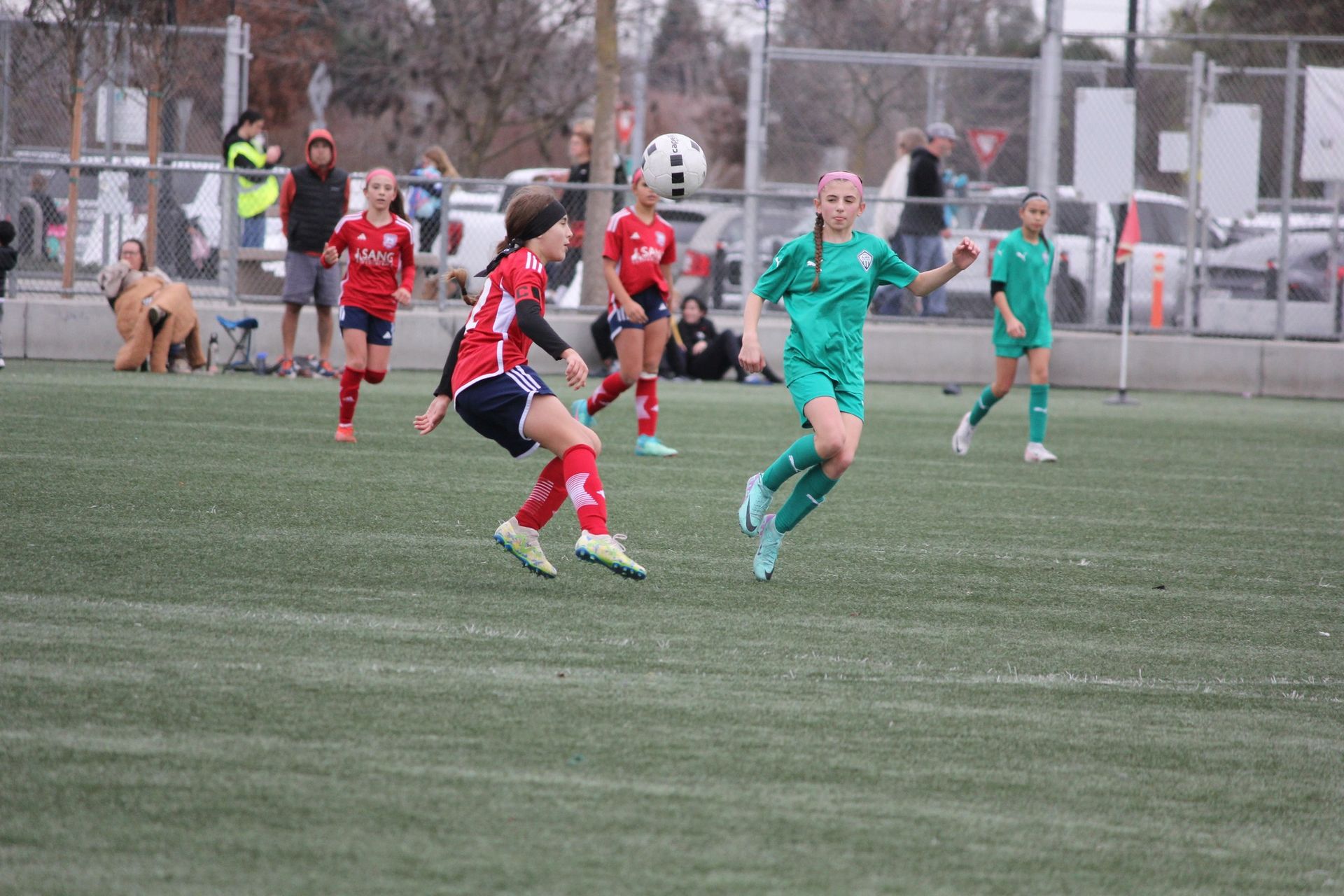Get Ready for Winter Sports Season with a Sports Physical

Winter is here, and that means skiing, snowboarding, ice hockey, and all the excitement of chilly-weather sports. Kids can’t wait to get outside and try new adventures, and parents want them to stay safe while having fun.
Winter sports preparation goes beyond gear—it’s about making sure your child’s body can handle the action. A quick check of their overall health can prevent injuries, boost performance, and let them focus on the fun.
A sports physical at
Sang Pediatrics makes this easy and stress-free. Our caring team reviews your child’s health, checks for past injuries, and provides personalized tips to keep them strong and confident on the slopes or ice. It’s a small step that sets the stage for a season full of fun, safety, and confidence.
Help Your Child Gear Up for Winter Fun
What Is a Sports Physical and Why Does Your Child Need One?
A sports physical, or pre-participation exam, checks your child’s overall health and readiness for winter sports. It goes beyond a quick checkup, helping spot hidden issues that could affect performance or safety.
Our pediatric sports medicine experts look at key areas, including:
- Heart and lungs: Detecting conditions that could affect stamina or breathing.
- Joints and muscles: Checking for past injuries or flexibility issues.
- Overall fitness: Ensuring your child can safely handle the sport’s demands.
Many schools and leagues require pediatric sports physicals before participation. Beyond paperwork, it’s a preventative step that keeps kids safe, active, and confident throughout the season.
Key Components of a Winter Sports Physical
Wondering what to expect in a sports physical? Let’s break it down.
At
Sang Pediatrics, we make sure your child is fully prepared for the season ahead with a detailed
sports physical checklist designed to keep them safe, strong, and ready to perform at their best on the slopes, rink, or trail.
Here’s what we focus on:
- Medical History: We review your child’s past injuries, illnesses, and family health history to identify any potential risks before they start playing.
- Physical Exam: Our team thoroughly examines the heart, lungs, joints, and muscles, as well as flexibility and overall fitness. This ensures your child can handle the physical demands of their sport.
- Vision and Hearing Checks: Clear vision and good hearing are essential, particularly for fast-paced sports like ice hockey or skiing.
- Vaccination Review: We make sure vaccines are up to date, including flu, COVID, and any others recommended for winter season activities.
- Nutrition and Hydration Guidance: Winter sports can be energy-intensive. We provide tips on fueling and staying hydrated so your child can play their best.
- Safety Gear Consultation: Proper helmets, padding, footwear, and protective equipment make a huge difference in preventing injuries. We guide parents and kids on what gear works best for each activity.
When to Schedule Your Child’s Sports Physical
We recommend that parents schedule sports physical appointments about four to six weeks before the season starts. This gives enough time for follow-ups or any additional care if needed. Booking early also helps avoid last-minute stress and ensures all school or team paperwork is completed on time.
Tips to Prepare Your Child for the Sports Physical
Scheduling a sports physical is an important step, but a little preparation can make the visit even smoother and more effective. Understanding the importance of sports physicals helps parents realize that it’s not just about meeting school requirements but ensuring their child’s health, performance, and long-term well-being.
Here are some tips to help your child get ready:
- Bring important information: Make a list of past injuries, current medications, and any allergies. This helps the pediatric team provide the best care and catch any potential concerns.
- Wear comfortable clothes: Choose outfits that are easy to move in and suitable for a quick physical exam. This makes the process easier for both your child and the examiner.
- Be honest about symptoms: Encourage your child to share any discomfort, pain, or unusual symptoms they may be experiencing. Honest answers help identify issues early and support effective injury prevention during sports.
- Focus on healthy habits: Leading up to the exam and the sports season, make sure your child gets enough sleep, eats a balanced diet, stays hydrated, and practices regular stretching routines. These habits improve performance and reduce the risk of injuries.
Winter Sports and Common Risks
Even with a sports physical, participating in winter sports comes with its own challenges. Knowing how to prevent winter sports injuries helps your child stay safe and enjoy the season to the fullest.
Different sports come with their own common injuries:
- Skiing/Snowboarding: Knee injuries from falls or sudden twists.
- Ice Hockey: Concussions, muscle strains, and collisions.
- Basketball: Ankle sprains and stress fractures from jumping and quick movements.
Here are a few winter sports safety tips to keep in mind:
- Hydration and nutrition: Cold weather can make kids forget to drink water, but staying hydrated and fueled helps maintain energy levels and supports recovery.
- Watch for early signs of injury: Pain, swelling, fatigue, dizziness, or trouble breathing are signals to slow down and get checked.
- Emergency planning: Keep a first aid kit handy and keep contact information of nearby medical facilities in case of an accident.
Ready for Winter Fun? Let’s Get Your Child Set!

Winter sports are full of excitement, and a quick sports physical appointment at Sang Pediatrics helps your child stay safe while having a blast. Our friendly, child-focused team checks their overall health, past injuries, and fitness so you can relax knowing they’re ready for the slopes, rink, or court.
Make it easy on your family—schedule your child’s sports physical today. With our expertise and personalized care, your child can focus on learning new skills, playing hard, and enjoying every moment of the season with confidence.
Protect Your Child’s Health and Boost Their Strength
Frequently Asked Questions
How can I find the best sports physicals clinic near me?
When searching for “sports physicals near me”, look for pediatric clinics that specialize in active kids and seasonal sports. A quality exam should include flexibility, balance, and strength checks tailored to winter activities like skiing, snowboarding, and ice hockey—helping your child stay safe, strong, and ready for the season.
How often should a child get a sports physical if they play multiple sports?
It’s generally recommended once per year, but kids with ongoing injuries or multiple sports seasons may benefit from follow-ups or check-ins as needed.
Are mental or emotional factors considered during a sports physical?
Sometimes! Providers may ask about your child’s confidence, stress, or anxiety related to sports to ensure they are mentally as well as physically ready.
How can a sports physical support kids returning after an injury?]
The exam can evaluate healing progress, recommend exercises, and suggest precautions to safely return to play without setbacks.












